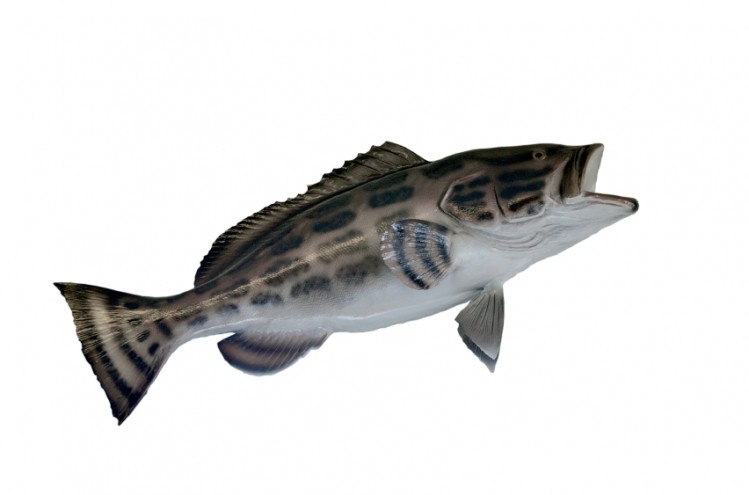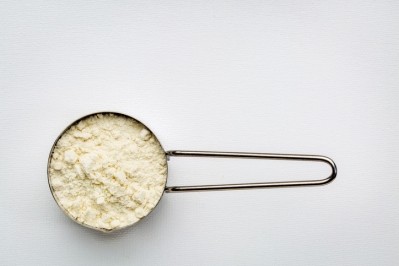Fish trimmings could be new value-added protein source

The bitter taste of fish trimmings-based hydrolysates (protein powder) is a big hurdle in the human consumption market. Despite containing high-quality food grade proteins, off-cuts are usually discarded or used in low-value commodity products such as fishmeal and oil, Nofima scientist and study lead Tone Aspevik said.
However, the research found that adding commercially available protease enzymes to salmon-based trimmings (heads and spines) creates non-bitter hydrolysates without affecting nutritional value.
“Reduction of the bitter taste is of utmost importance in the production of fish protein hydrolysates (FPHs), but also knowledge of the surface-active and nutritional properties of a hydrolysate may be important for its potential inclusion in food products,” Aspevik said.
“The nutritional properties of the raw material and resulting hydrolysates revealed low levels of tryptophan, leucine, isoleucine and valine to meet dietary requirements of children under three years of age.”
Nofima (the Norwegian food research institute) is funded by the Norwegian government, the EU and commercial investments and has an annual budget of about €60 million.
The findings could be a business opportunity for companies already producing fish products as well as young businesses looking for new sources of protein supplementation, Dr Åge Oterhals, senior scientist at Nofima told NutraIngredients.
Laura Jones, global food science analyst at Mintel told us there is rising demand for alternative proteins.
The 2015 EU ‘landing obligation’ policy has also piqued European interest in fish as potential novel sources of protein, Dr Chris Mclaughlin from the University of Ulster in Northern Ireland previously told us.
Study details
FPHs’ bitter taste is a result of the size and composition of the peptides, Aspevik explained. Specifically, the taste is due to “exposure of hydrophobic amino acids and moieties during the hydrolysis process,” she said.
The study used five protease – Alcalase 2.4L, Corolase 7089, Neutrase 0.8L, Promod 671L and Protex 7L – to cleave the fish trimmings proteins into smaller peptides.
“Proteases act by cleaving proteins into smaller peptides and free amino acids that are more water-soluble and have altered sensory and surface-active properties compared to the intact protein,” Aspevik said.
Nutritional and chemical properties of the final products were tested, and taste was evaluated by Nofima’s sensory panel of judges.
“The main conclusions were that the bitter taste really depends on type of enzymes used in the process and the degree of hydrolysis that is obtained,” said Dr Oterhals, who was also a supervisor on the study.
He stressed that further research is needed to identify the enzymes with the best effects.
“(We) learned a lot about what parameters influence the development of bitter taste, but there is still more to do in that area before you can actually control it,” he added.
Limitations & further research
Despite removing bitterness, the hydrolysates in question still hold a “fishy” taste, Aspevik notes.
This could be a limiting factorfor the powder’s food applications as a protein ingredient, Dr Oterhals and Jones agreed.
“If you’re adding fish protein (which tastes like fish) into a cereal bar it won’t be very well received, people don’t want a fish flavoured snack bar, even if it’s no longer bitter,” Jones said. “But if it could be disguised I think it would be accepted a lot better.”
Dr Oterhals added: “If it’s in a food product which already has a fishy taste, or a product where you want to have (a fishy taste) then you could use this as a protein ingredient.”
When asked about flavour improvement and possible ingredients which could work with the fish powder, Dr Oterhals said further research into this area is under consideration but was unable to provide further details.
Other research projects ongoing into the effects of bioactive proteins in marine animals could also bear some health claims which could have scope in terms of FPHs, he said.
US researchers have also looked at the nutraceutical properties of fish protein, focusing on the development of nutraceutical seafood products using isoelectric solubilisation/precipitation (ISP) to recover fish protein isolate (FPI).

























